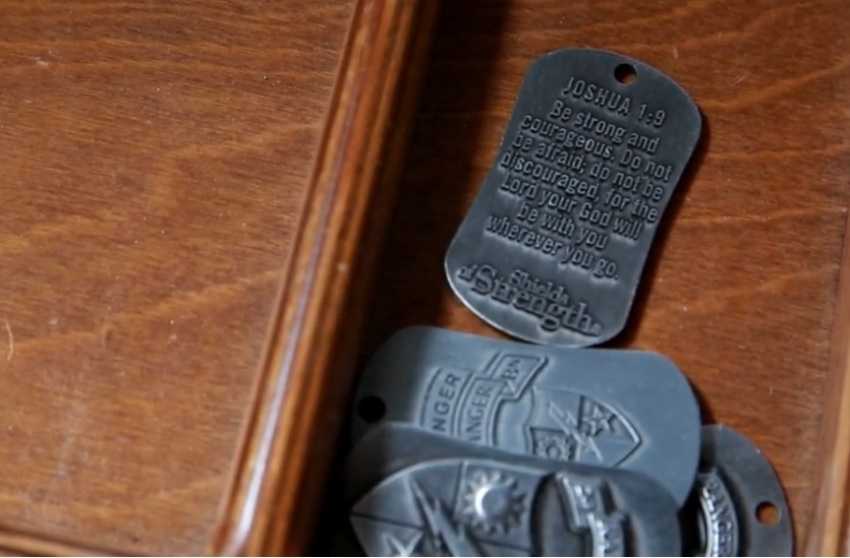Texas business sues US military over ban on sale of Bible-themed dog tags

A Texas-based religious business that makes specialty dog tags with Bible verses and Christian imagery has filed a lawsuit against the United States Department of Defense over its decision to prohibit the company from selling religious tags with U.S. armed forces trademarks.
Shields of Strength filed a lawsuit last week against the U.S. Department of Defense and others tied to the military in the U.S. District Court for the Eastern District of Texas, Tyler Division.
At issue, according to the suit, was a decision by various branches of the military to prohibit Shields of Strength from using the various trademarks of the Armed Forces on their specialized dog tags.
For over 20 years, Shields of Strength had been allowed to include the military trademarks alongside Bible verse quotes and Christian imagery, such as a cross. The business boasts of having sold or donated around 4 million dog tags.
According to a Department of Defense instruction from April 2020, military trademarks cannot be included on products that feature the promotion of religious views.
“DoD marks may not be licensed for use in a manner that creates a perception of DoD endorsement of any non-federal entity or its products and services,” stated the instruction.
“DoD marks may not be licensed for any purpose intended to promote ideological movements, sociopolitical change, religious beliefs (including non-belief), specific interpretations of morality, or legislative/statutory change.”
In its complaint, Shields of Strength accused the military of violating its religious liberty when the DoD demanded the removal of religious elements from the specialty dog tags.
“The DoD’s directive that SoS remove all Biblical references from its products demonstrates precisely the type of government hostility towards religion that the Establishment Clause forbids,” stated the lawsuit.
“SoS has suffered irreparable harm, including the loss of fundamental constitutional rights, entitling it to injunctive relief, declaratory relief, legal relief, damages under [the Religious Freedom Restoration Act], and attorneys’ fees and costs.”
Shields of Strength is being represented by the First Liberty Institute, a conservative law firm headquartered in Plano, Texas, and the law firm Fish & Richardson.
“It’s a cruel insult to our service members to deny them a source of inspiration, hope, and encouragement simply because it contains a religious message,” said Mike Berry of First Liberty Institute in a statement released last week.
“DOD officials caved to the empty threats of those who make their living by being offended. There’s no legal reason for the military to discriminate against Shields of Strength,” it added.
In July 2019, Military Religious Freedom Foundation President Mikey Weinstein sent cease-and-desist letters to each branch of the Armed Forces, demanding that they prohibit Shields of Strength from using the trademarks of each military branch on its products.
“Shields of Strength is and has always been free to produce and sell its other products,” said Weinstein in a statement to Fox News. “It is only these products with an official DoD emblem for which a DoD license is required that the DoD has said Shields of Strength cannot sell.”
“Hopefully, any competent Federal judge will easily see through First Liberty Institute’s specious subterfuge and justly rule in favor of the DoD via DoD, or DoJ on behalf of DoD, filing a simple Motion for Summary Judgment or other routine, preliminary dispositive Motions.”



























